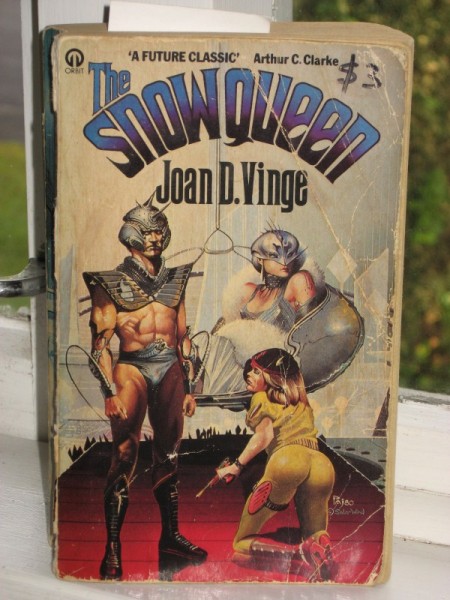Charles Stross linked to this guide, suggesting that it is worth reading:
Introduction
If you are not attracted by the promise of an extended trek over rough terrain, with little access to hot showers or decent restaurants, the classic Tour of Fantasyland is probably not for you.That is why the Management now offers separate Fantasy City Tours, available to tour groups as well as single individuals. The cities on offer have been carefully selected: they are relatively modern, if not downright futuristic, and offer seasoned travellers the comforts they have come to expect. You will not encounter any rustic taverns, bards, or bowls of stew on these tours! Instead, expect nightclubs, rock singers, and lots of gourmet coffee.
In the Toughpick section, you will find details on the people, places and things you are likely to encounter in your chosen Fantasy City. Please note that while you will not encounter all of them, you will inevitably encounter some of them before the conclusion of your Tour, and it is best to be prepared.
As always, we have carefully marked certain words as Official Management Terms. You are advised to commit these to memory, as you will certainly encounter them everywhere in your Tour.
[. . .]
Civic Pride
When you visit a Tainted City, you will likely encounter a large variety of refugees, wanderers, outlaws, and criminals. Occasionally, if you are very lucky, you may even meet some honest Workers.Given the nightmarish and unhealthy environment, you may be tempted to ask a few of these people why they choose to stay in a city that is chock-full of Zombies or Mysterious Blight. Do not bother. They will not be able to produce a reason, at least not one that makes sense to you; you may recall the ancient anecdote about the man who cleaned up after the elephants in the circus.
Demons
Demons are often almost indistinguishable from mere humans. This goes especially for male demons, who for some reason greatly outnumber female demons in Undead Cities.Watch out for strange eyes (ebony OMT, fathomless OMT, unearthly blue OMT), a cruel mouth, and a general tendency towards boorish sarcasm. Admittedly nine tenths of the men you are likely to meet in Undead Cities will fit this description, so it does not really narrow things down much.
[. . .]
Goggles
They do nothing. However, they look cool. In a Steam-driven City, you will find these indispensable if you wish to look like a native.

 Dateline: Wisconsin. At the University of Wisconsin-Stout, theater professor James Miller put up a poster on his door with an image of Nathan Fillon in the character of Captain Malcolm Reynolds with one of Mal’s better lines: “You don’t know me, son, so let me explain this to you once: If I ever kill you, you’ll be awake. You’ll be facing me. And you’ll be armed.”
Dateline: Wisconsin. At the University of Wisconsin-Stout, theater professor James Miller put up a poster on his door with an image of Nathan Fillon in the character of Captain Malcolm Reynolds with one of Mal’s better lines: “You don’t know me, son, so let me explain this to you once: If I ever kill you, you’ll be awake. You’ll be facing me. And you’ll be armed.”


